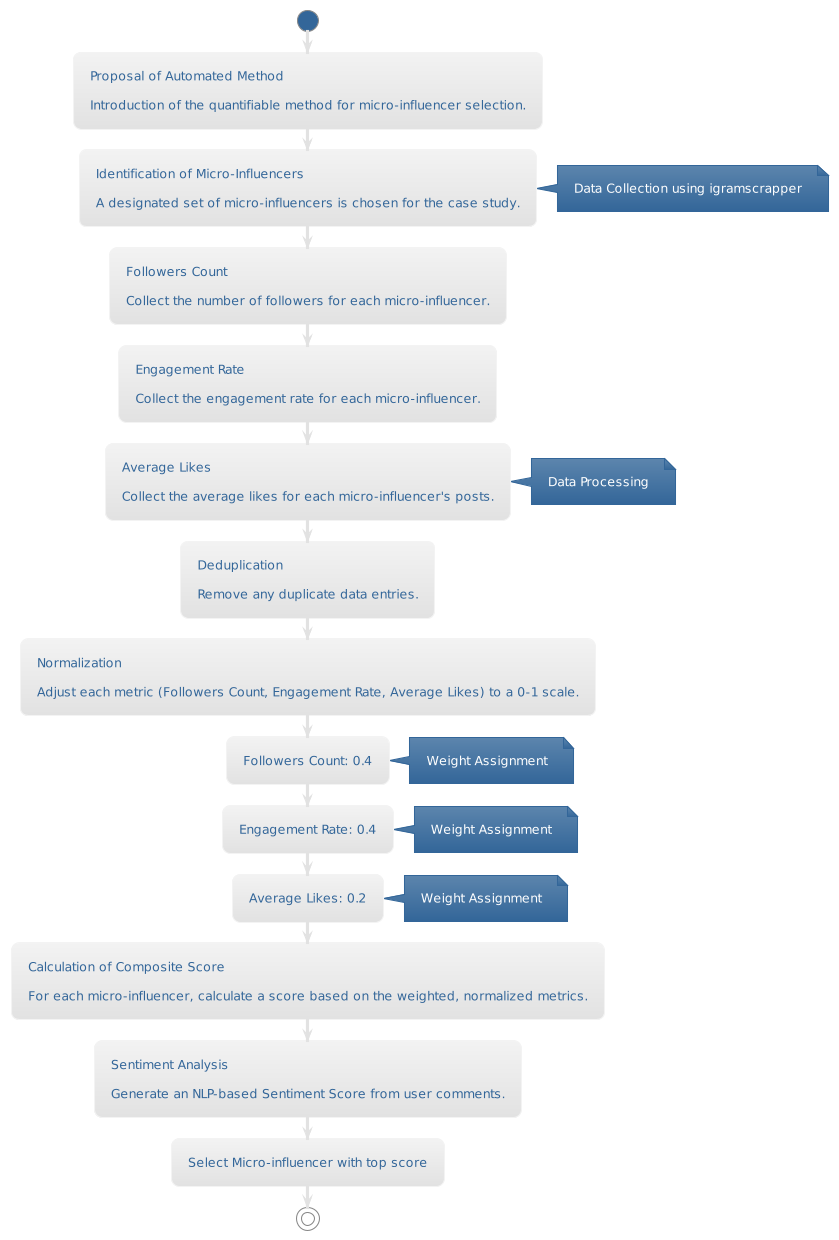A Framework for Micro-Influencer Selection in Pet Product Marketing Using Social Media Performance Metrics and Natural Language Processing
Akshay Shah
iWeb Technology Solutions
https://orcid.org/0009-0009-3769-1830
Siddhesh Nasnodkar
iWeb Technology Solutions
https://orcid.org/0009-0007-3464-1470
Keywords: Micro-Influencer Selection, Pet Product Advertising, NLP, Sentiment Analysis, Social Media Performance Metric
Abstract
We propose an automated quantifiable method for micro-influencer selection in the niche market of pet product advertising. A designated set of micro-influencers was identified and used as the case study. Using igramscrapper, a Python API, key performance metrics—Followers Count, Engagement Rate, and Average Likes—were collected. The data underwent deduplication and normalization to a 0-1 scale to eliminate scale-induced biases. Weights were assigned to each metric according to their importance in marketing objectives: Followers Count (0.4), Engagement Rate (0.4), and Average Likes (0.2). A composite score was then calculated for each micro-influencer based on these weighted, normalized metrics. Additionally, an NLP-based Sentiment Score was generated from user comments. The study found a strong correlation between the composite score and Sentiment Score, thereby suggesting that the composite score could be used as a predictor of sentiment towards the micro-influencers. This implies that it is possible to predict public sentiment using the composite score, thereby adding another layer of data-driven decision-making capability to the system. We argued that understanding sentiment is crucial for micro-influencer selection in product advertising because it provides insights into how well the target audience is likely to receive the influencer's endorsements, thereby affecting the overall success of the advertising campaign.





